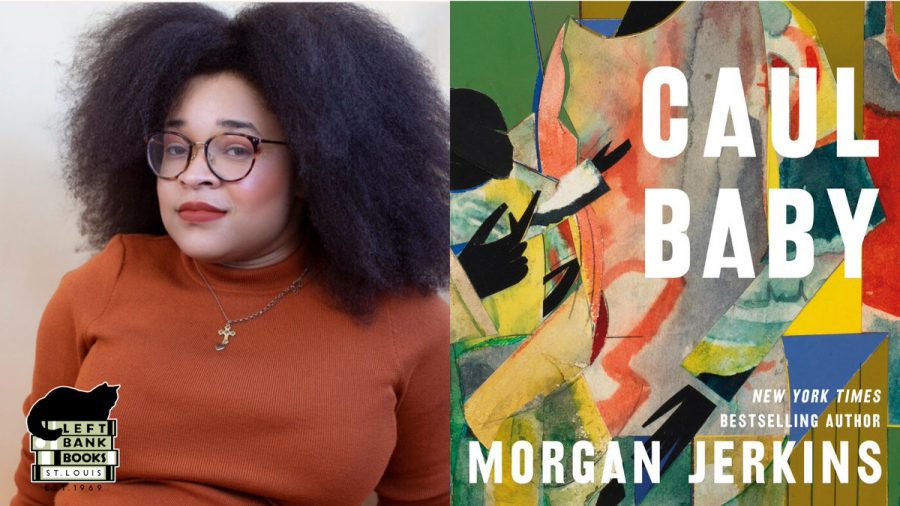English Department Hosts Author Morgan Jerkins
On Tuesday, Fordham’s English department welcomed author and essayist Morgan Jerkins to speak as part of its Transatlantic Modern Women speaker series. Professor Anne Fernald facilitated the discussion, which took place over Zoom as part of her class on transatlantic modern women and was open to the public.
Jerkins is the celebrated author of “Wandering in Strange Lands” and the New York Times bestseller “This Will Be My Undoing.” She was recently named one of Forbes’ “30 under 30” in the media. She has also published articles and essays in dozens of publications, including The New Yorker, Rolling Stone, The Atlantic and the New York Times. Her third book, “Caul Baby: A Novel,” will be published in April.
One of her most well-known essays centers on the life and forgotten work of Harlem Renaissance writer Jessie Fauset. Jerkins told her audience of Fordham English majors and professors that she became fascinated with Fauset’s work and life story after she had lived in Harlem for two years. “I really love writing anniversary pieces and commemorative pieces,” explained Jerkins. “I was looking up Harlem Renaissance writers, and I came across the name Jessie Fauset. I did a quick Google search, and I was astounded that I had never heard of this person.”
Jerkins said she felt particularly drawn to Fauset because of the many striking similarities the two women share. Like Jerkins, Fauset was a Black woman raised in South Jersey, an Ivy League school graduate, multilingual, well-traveled and a prolific writer. Both women also found themselves living and working in Harlem as adults.
Fauset published several novels, including “There Is Confusion” and “Plum Bun,” but is largely overlooked and overshadowed by other writers and artists of the time, explained Jerkins. In her piece “The Forgotten Work of Jessie Redmon Fauset,” Jerkins examines the relationships Fauset had with the movers and shakers in Harlem during the period — including Langston Hughes and W.E.B. Du Bois — and reflects on how a talent like Fauset could so easily fade into obscurity.
Part of Fauset’s disappearance from historical accounts of the Harlem Renaissance is attributed to her gender, said Jerkins. She recalled a statement from scholar David Levering Lewis that she included in her New Yorker essay: “There is no telling what she would have done had she been a man, given her first-rate mind and formidable efficiency at any task.”
Jerkins and Fernald reflected on the tendency for mainstream literature to allow only a small fraction of Black female authors to achieve success and recognition. Jerkins also discussed why it always seems to be Black historians and writers who do the work of rediscovering important Black figures in history.
“History is written by the victors,” said Jerkins. “Who is going to be documented well and who is going to be left in the shadows?” She said she feels that everyone has a stake in recording the full picture of history, not just people of color.
Part of Jerkins’ reflection of Fauset’s work involves questioning how Black authors should represent Black life in their writing. Fauset is sometimes criticized for being too concerned with respectability in her novels and focusing primarily on the experiences of middle-class Black families, explained Fernald. Some critics feel this excludes other aspects of the Black experience, especially the perspectives of those from poorer backgrounds.
Jerkins said she has also struggled with her responsibility as a Black female author, especially in how she portrays Black life. Part of the issue is the prevailing assumption among white academics and readers that Black stories cannot be universal, she explained. “That’s the hard part about being someone who is marginalized and othered,” said Jerkins. “The things that concern us are seen as in the periphery, are seen as the outlier.”
There is also an important debate on how much stories written by Black authors should center on Black pain. There is more to Black life than pain, said Jerkins. But pain, in some form, is a necessary part of any compelling story.
“Now, if you’re talking about Black pain in regards to the larger forces that be — systemic oppression — I don’t think that’s something that should be removed,” said Jerkins. “That’s a part of our story, and I don’t think that it’s something that [we] should have to minimize or condense or romanticize because [we] don’t want to show Black people getting hurt. That’s part of the human condition.” Jerkins explained that there is a fine line between exploiting Black pain and using its portrayal to explore resilience.
To close the discussion, Jerkins offered writing advice to the virtual audience. As a professor at Columbia University, Jerkins often advises young writers on how to pitch their stories and essays to major publications. Her quick pitch tip? Keep all pitches short and to the point — “no more than 500 words,” she advised.
But she also stressed the importance of developing confidence in one’s abilities. “Don’t ask for permission,” said Jerkins. “If you want to write whatever you want to write, then don’t ask for permission, especially as a writer of color. You just can’t. You’ve just got to go for it.”

Abbey Delk is a junior from Wheeling, West Virginia, double majoring in English and journalism and minoring in film & television. Her career at the...















































































































































































































